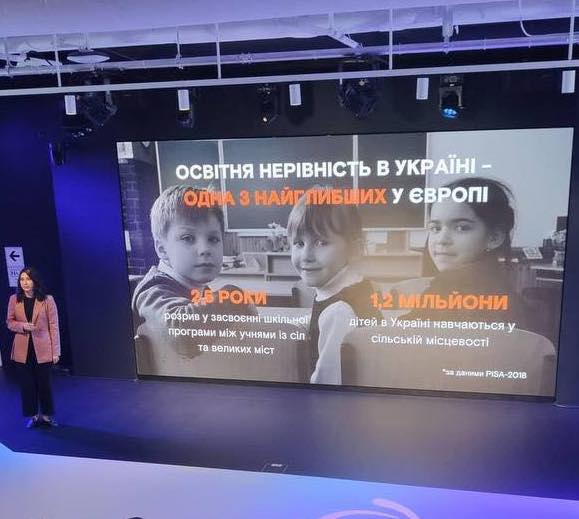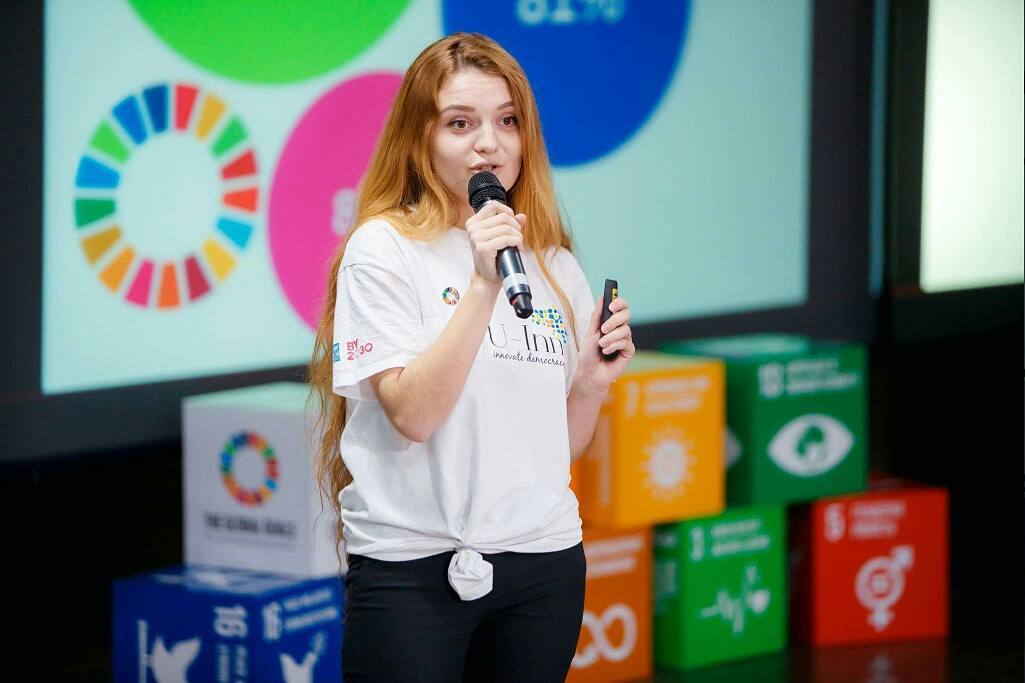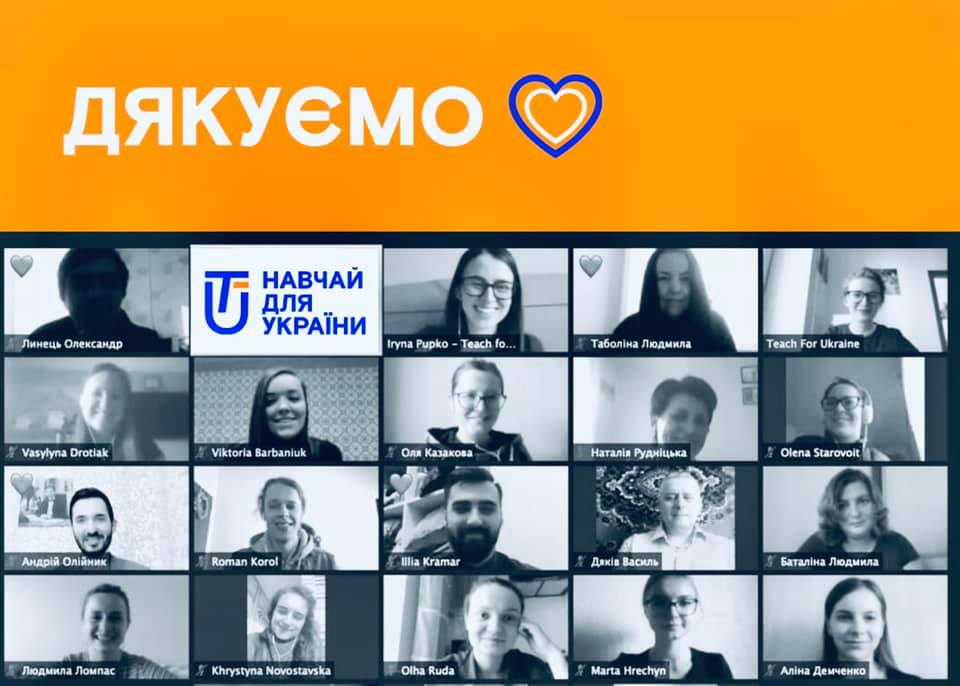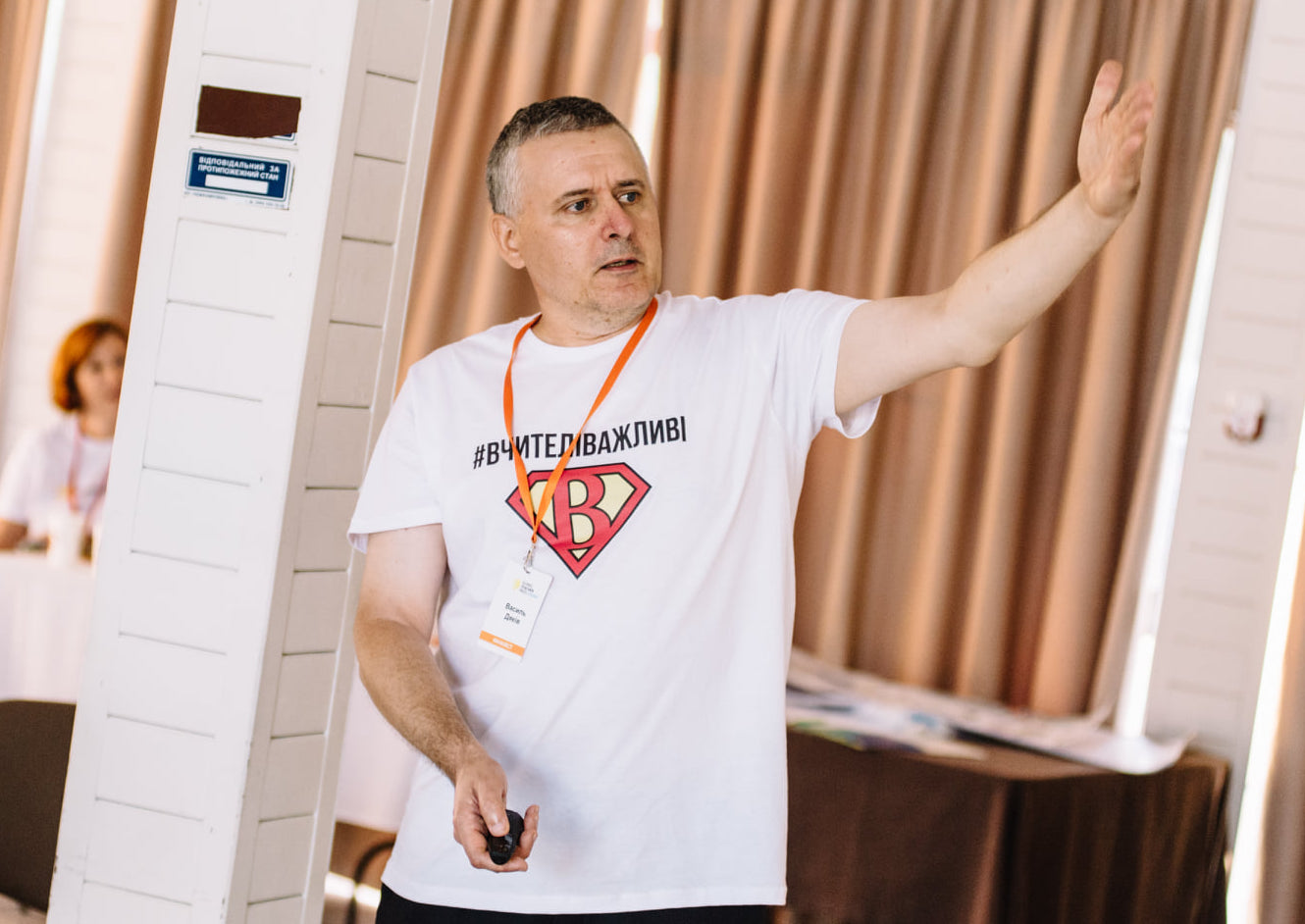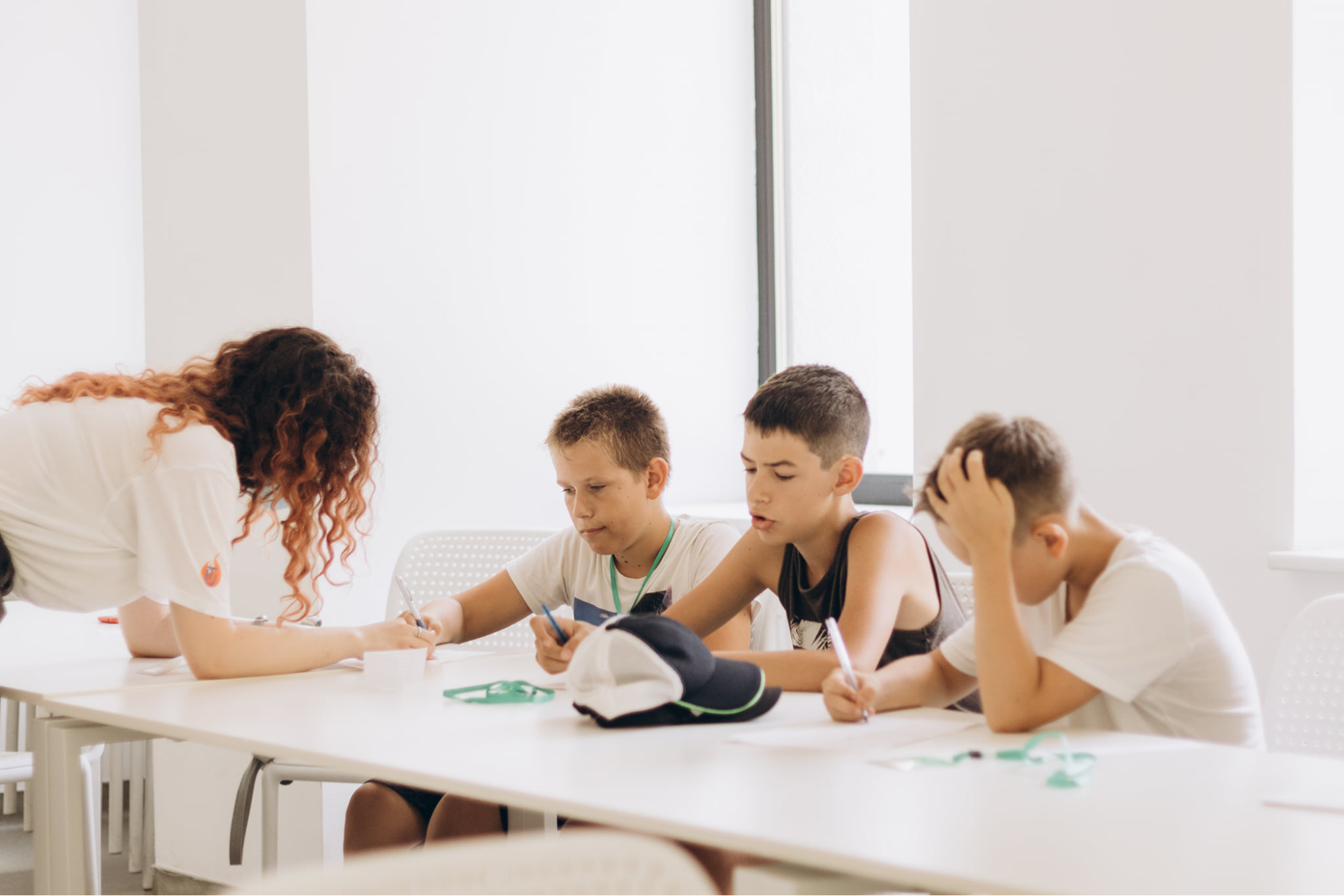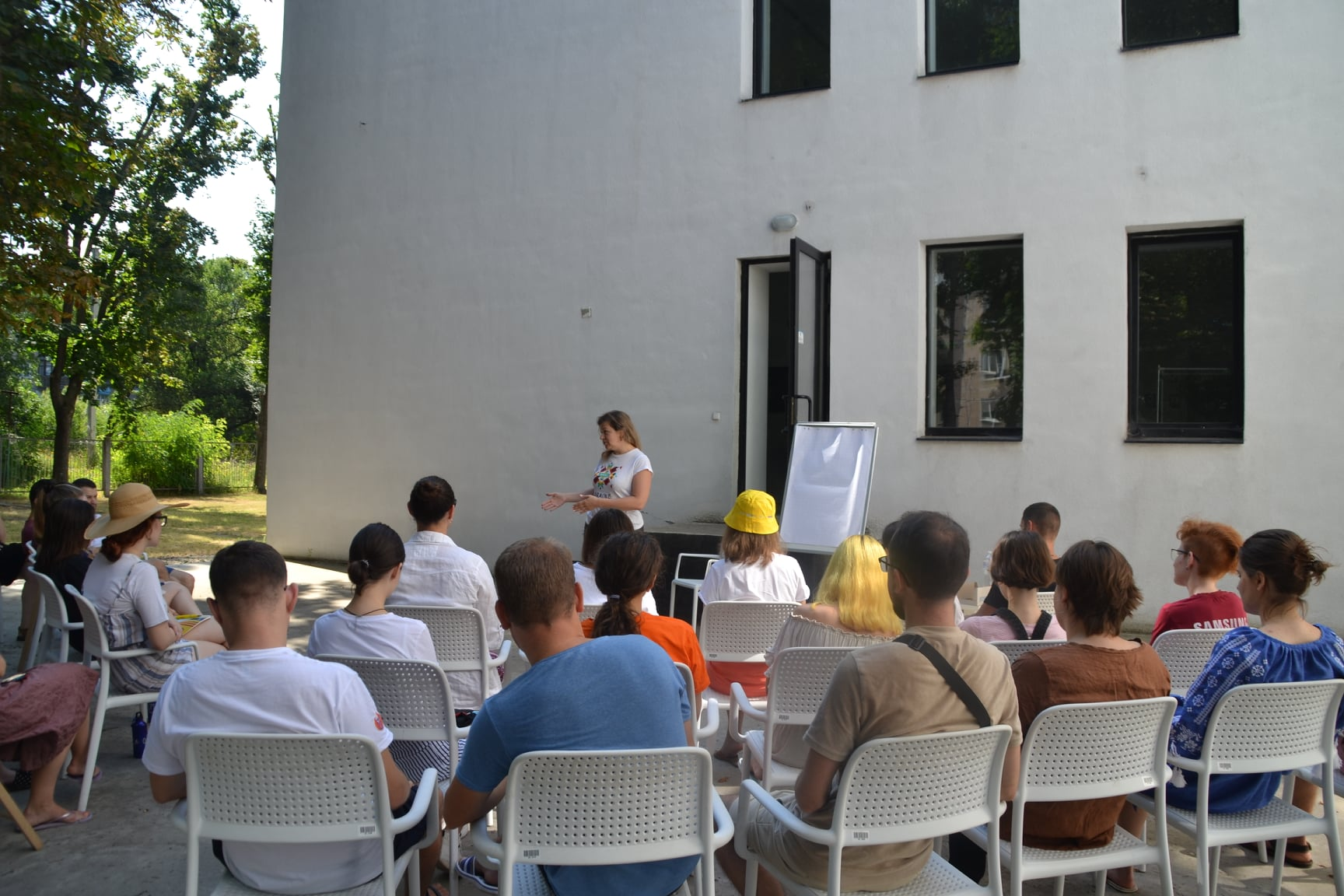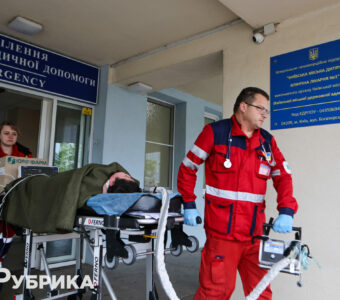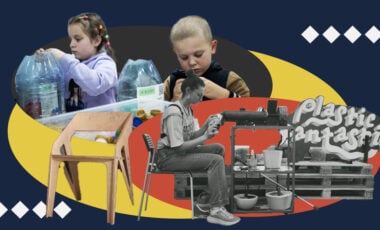Educational inequality in Ukraine is one of the most serious in Europe. What rural schools lack and how to fix it
One-third of students in Ukraine, which is almost one million two hundred thousand children, study in villages. These children lag behind their peers in the city by an average of two and a half years. Why does it happen and how to solve it? Rubryka analyzed.

Rubryka
The difference in the achievements of children from large and small settlements appears not because students in rural schools have worse abilities. Children from the Ukrainian hinterland win prizes at international subject competitions, become entrants to top universities, and are officially recognized as geniuses.
However, children from rural areas have poorer access to quality education, lower external independent evaluation results, a lower percentage of admissions to higher education institutions, and face serious problems in finding work and self-realization after school. There's a significant gap between the academic achievements of students from urban and rural areas in many other countries, but educational inequality in our country is one of the most serious in Europe.
What does a modern school loo like in a Ukrainian village, what does it lack, and do students from the village have a chance to catch up with children from the city? Participants of the "Teach For Ukraine" program and Vasyl Diakiv, a teacher of world history, history of Ukraine, and basics of health from Zalishchyky, Ternopil region, winner of the national award, Global Teacher Prize Ukraine (2020), helped to answer the questions.
Voids, gaps, and pandemic
Today, the inequality issue in the academic achievement of students from urban and rural areas is recognized at the level of the Ukrainian Government's program of action. Although there's equal access to education for all citizens and exclusive dependence on individual abilities, motivation, and desires at the state level, in reality, everything is not quite and not always so.
During the 30 years of independence, during the period of global urbanization, the state, unfortunately, hasn't determined the place and role of the village in its operation. Today, the real proprietors of the village are large agricultural holdings that cultivate agricultural land and which, with few exceptions, don't care about the preservation and development of the village's social structure. Farming and especially the cooperation of agricultural producers haven't become widespread, although they would significantly improve the situation in the villages, primarily because locals are involved in these processes. Therefore, the problem with education in Ukraine is, first, not a question of the educational system, but a political and socio-economic issue.
According to the authoritative international assessment of PISA students, the educational gap between the village and the city was more than 2.5 years in 2018. PISA is conducted every three years, but the planned assessment for 2021 has been postponed to 2022 due to the pandemic.
According to the Education Ombudsperson of Ukraine Serhii Horbachev, for students, especially of general secondary education, inequality of access to education in Ukraine and the world during the pandemic has only worsened. Many factors are involved here: the region of residence of students, logistics of families and teachers for distance learning, motivation of students, organization and provision of distance learning by teachers, school principals, and local authorities, and, of course, appropriate action by the state. Children from families with low social status and families in difficult life circumstances, as well as children from rural areas and children with special educational needs, were especially affected.
"The pandemic hasn't only seriously deepened educational inequality," says Olha Ruda, head of cooperation with communities and schools in the "Teach for Ukraine" program, "but also highlighted all the accompanying shortcomings. It's limited access to the Internet and gadgets, poorer digital skills of children and teachers in small settlements, worse economic opportunities for families in villages and small towns to attract additional individual support to children in the form of tutoring (which is very common in cities).
According to the State Statistics Service, households in large cities have access to the Internet almost twice as often as rural households: 80% vs. 44%. 79.5% of residents of large cities use the Internet, while 55.9% of rural residents reported the same. More than 4 million Ukrainians live in villages where there's no high-quality Internet. That is, a large number of children, as well as teachers from small communities, simply haven't had the opportunity to study and teach during the pandemic due to limited access to the Internet and technology.
For example, in the United Kingdom, realizing that many students didn't have access to quality distance learning during the pandemic, the government, in partnership with five charities, including Teach First (a sister organization of Teach for Ukraine), created a National Tutoring Program, which aims to support students from the most disadvantaged families in accessing quality and effective education. Nearly £350 million has been allocated to this program as part of a large-scale government plan with a budget of £1 billion, which aims to help students catch up with the knowledge lost during the pandemic."
It's still a dream for Ukrainian education to have such a large investment. However, some steps are being taken in our country as well. This year, the Government has allocated funds under the educational subvention for the "Laptop for Every Teacher" program, which will purchase 60 thousand units of equipment on a co-financing basis by the state and the community. Under this program, co-financing for communities with a population of 40,000 or more will be 70%, while for communities with a smaller population, co-financing from the state will be 90-95%. Unfortunately, as can be seen from the subvention distribution map on the Ministry of Digital Transformation website, this number of laptops isn't enough to provide each teacher with a computer. In addition, in the absence of high-quality Internet coverage and appropriate gadgets for children, even a sufficient number of one teacher's laptop can not fix the situation.
Real situation in villages
Non-governmental organizations are also interested in Ukrainian education. Yes, Teach for Ukraine is part of the international network Teach For All, which unites 60 countries and has existed for over 30 years. For five years, this NGO has been working to address educational inequality in Ukraine. Participants of the "Teach for Ukraine" program stay in small settlements for 2 years and become inspiring teachers for children, as well as organize extracurricular initiatives for schools and communities. According to school principals in small settlements, Teach for Ukraine is a necessary initiative, because even a very active search for the right teacher rarely leads to anything, which forces teachers to combine subjects or overload the hours of existing teachers. This is confirmed by the fact that this year, the project received more than 100 applications from schools with a total number of vacancies, more than 3,000.
Iryna Pupko, a graduate of Teach for Ukraine who taught geography in Kaharlyk, Kyiv region, shares:
"When you first enter the classroom, it seems that 70% of children don't want to learn. But in reality, it all depends on communication, workload, clarity of instructions, and interest in the subject of the teacher. There are, of course, students who aren't motivated, but I would say that all children are curious and want to learn, but 100% will say that they're not interested in the current school, almost all children want to have a good and secure future life, so they're extremely motivated by the link between learning and actual life and how to apply this knowledge. Then the number of those who want to learn increases to 99%."
"If we talk about the problem of educational inequality in general," Olha Ruda continues, "it's extremely complex: it's caused by educational (worse logistics and equipment, lack of staff in schools in small towns), socio-economic factors (lower living standards, poverty, worse infrastructure), as well as certain stereotypical visions (for example, that education isn't valuable or that not all children are capable of learning.) As for the crucial role of teachers in the quality of education, it's no secret that young talents are hard to involve in the village and small-town schools. From our experience of communicating with such schools, we know of cases where children don't have English or mathematics for years simply because there's simply no teacher, specializing in these subjects, or one teacher who can teach 5 different items."
Several studies suggest that even in schools with the best technical support, the level of student's knowledge won't improve with no good teachers. Olha Ruda says that when communicating with schools in selecting "Teach for Ukraine" partner schools, project participants hear stories about how sets of robotics or equipment for STEM laboratories remain unpacked because there's no teacher who could work with them.
Dance flash mobs, competition, and funding
Vasyl Diakiv, who became the Teacher of the Year in 2020, shared his observations: often during various methodological activities related to the exchange of experience, he heard the following positions from rural teachers: "Yes, you have it in the city. You have more opportunities. We have no Internet. You have more students in the class. We still have to do other things to make extra money, etc." Yes, a rural teacher has many reasons not to develop. Some of them are objective, but there are also subjective factors. In this case, we come to the axiom: "Only a teacher-personality, innovator, a patriot can educate, form a student personality, innovator, patriot." Therefore, the extent to which a particular teacher, and not only in the village, meets such criteria is determined by his personal choice, which is based on common values.
"We have non-competitiveness among teachers," says Vasyl Diakiv, "because the state doesn't try to encourage them to develop themselves and find ways to achieve both their own success and the success of students. Different efforts made by teachers in the educational process are evaluated equally. Equalization in teacher pay continues to remain. When one teacher has 5-10 students in a class, and another one has 25-30 students with the same qualification category and teaching load, they receive the same salary. When one teacher works 24/7, does his best, and another one only reads hours, but they both have the same pedagogical workload, qualification category, they receive the same salary. And there are many examples. It often seems that the state provides some teachers with social benefits, just for the fact that they came to school and were present at classes, and a person receives the primary income from other sources.
Sometimes a village school teacher doesn't want to raise the qualification category because of the certification of teachers, because "you need to do something, you need to go to the district to present your work, I don't need it, I don't deserve it, and what will other colleagues say? They'll say I want to show off," etc. And if a specialist of one subject in a rural school is forced to become a "multi-machine" and teaches other disciplines, the quality of teaching non-specialist subjects, to put it mildly, is questionable."
The pandemic period greatly exacerbated the already unequal situation, although not without a positive outcome:
"Unfortunately, almost a year and a half of quarantine in 2020-2021, in my opinion, the rural school has mostly lost a few more positions in competition with urban schools. Although there's a positive aspect to consider. It is that students who didn't want to study at school, get an education now have more time to realize their abilities in the natural environment. For example, they help their parents in the household by improving their skills, do other things for which they're motivated, and get a positive result."
According to Vasyl Diakiv, lately, it has become very hype to pay attention to the form, not the content in the information space, and pretend it's know-how. Often the "recipe for success" of teachers are the practices of those teachers who become popular on social media not by creating quality and modern educational content or involving students in the project or integrated activities, but by one-day performances that don't carry any value and meaning. Of course, emotional intelligence development is important, and learning should be versatile and bring positive impressions, but the criterion for the professionalism and effectiveness of a teacher or school principal can not be dance flash mobs. Therefore, the work of the school team should be aimed primarily at increasing the number of students in the school, their motivation, improving the resource base, and establishing cooperation with local authorities, and such cases are worth the attention of the media and the public."
What's missing in the village and where to find it?
Based on his experience, Vasyl Diakiv notes several factors that affect the provision of quality education to students in rural schools:
- First, the availability of resources that create more opportunities to realize the child's potential.
- Second, local governments should understand the relationship between the existing socio-economic situation of the village and the success of the educational institution that operates in it, and the gradual creation of conditions to improve the first factor as a necessary condition for further existence (or development) of the school.
- Third, the positive perception of education by the community (environment) as a value that improves their well-being, but requires significant efforts on the part of the child and parental support. Changing the consumer's attitude to the functioning of the school in the village, when the community requires local government and the state to finance it but doesn't make its efforts to support it, doesn't look for points of cooperation and opportunities.
- Fourth, a motivated team of educators who work together for the child's success have a development strategy and understand the importance of change.
- Fifth, the creation of a competitive educational environment for students, where the child's success depends not only on the specific learning score in class but also on the conditions for natural abilities and support development.
One of the important tasks necessary for implementing the mission of the New Ukrainian School and optimizing the educational network is to provide the village school with financial autonomy.
"Today it's not uncommon," says Vasyl Dyakiv, "when the teaching staff of rural schools with a small number of children believe that the government should provide them with full funding. But the state provides funding per student, and a small number of students doesn't allow full funding. Therefore, each teacher staff of such schools should know how much public funds will be enough to finance their activities, and then a skillful, effective combination of managerial skills of the principal and the community's strategic vision for educational network development should address co-financing. Departure from paternalism and teaching staff, recognizing their responsibility for the activities of the school in the village; it's a necessary condition for starting the path to success."
The Global Teacher Prize Ukraine is also one of the drivers of change in overcoming educational inequality. After all, the competition encourages self-improvement and competition, which ultimately leads to the increased overall professionalism of teachers.
And, Vasyl Diakiv adds: "Participation in grant programs, involvement in the educational process in rural schools of new, motivated professionals, online resources, such as the All-Ukrainian online school.
Rural school change agents have been participants in the Teach for Ukraine project for several years now when motivated young people strive to work productively in the countryside. They must be selected and trained at the Summer Institute, studying for a master's program at Borys Hrinchenko Kyiv University. On the other hand, rural schools, seeing the need for change in the educational process, send applications for program participants to teach them and help them change. This is far from a complete list of opportunities to change the environment of a rural school. And there are no ready-made recipes for all rural schools. Everyone seeks and chooses their path if they want."
The most important thing for a rural school is the teams, wanting to become better, more competitive, look for opportunities in cooperation with local authorities and the community to develop, first, the village, and then, the educational institution. Currently, programs and initiatives are being implemented in Ukraine to help these processes. These are the first steps towards overcoming inequality. We still have to pull through the rest of the way, making our efforts.


